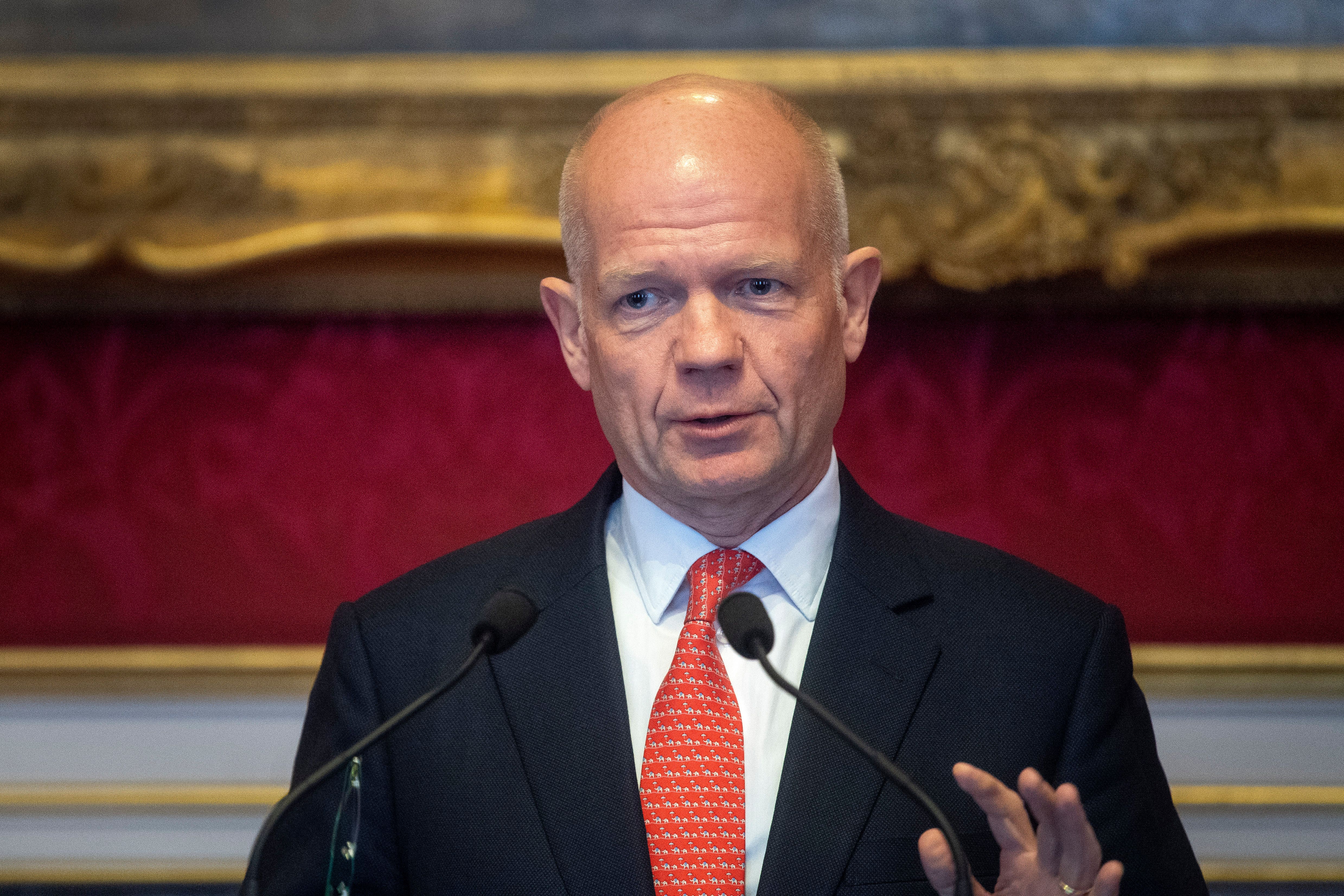Lord Hague urges Culture Secretary to ‘intervene’ on Telegraph sale
The former foreign secretary described the potential sale to UAE investors as ‘disturbing’.

Former foreign secretary Lord Hague has described the sale of the Daily Telegraph to a United Arab Emirates-based investment fund as “disturbing”.
A number of Conservative MPs have urged ministers to block the sale to RedBird IMI, an investment fund owned by Sheikh Mansour bin Zayed Al Nahyan, vice-president of the United Arab Emirates (UAE).
Lord Hague told Culture Secretary Lucy Frazer, who is considering whether the deal warrants intervention on public interest grounds, that he would “certainly intervene”.
Writing in The Times, the former Conservative leader said: “The prospect of important British media institutions the Telegraph newspapers and The Spectator falling into the ownership of Sheikh Mansour of the UAE is disturbing and should be prevented.
One of Britain's great advantages is that we still have an irreverent, searching, competitive media
“I say that as an avowed enthusiast for the Emirates, its achievements and its role in the world.”
Chairwoman of the Foreign Affairs Select Committee and Tory MP Alicia Kearns also voiced concerns, saying there were a group of MPs having private conversations about the potential implications the deal would have for press freedom.
“There are a group of us who are concerned about this as Conservative MPs and we are looking at how we make our views known,” she told Sky News Politics Hub.
“We’ll be having private conversations behind the scenes, but we’re looking at whether we want to do something more public as well.”
Lord Hague recounted a call he had taken from a senior figure in the UAE when he was foreign secretary, complaining about stories run by the BBC.
“He found it difficult to comprehend that British ministers could do nothing about media coverage that had implications for Britain’s foreign relations, and that we would regard it as wrong even to try,” he wrote.
“The idea of owning or establishing a company or institution that is deliberately annoying to you, and doing nothing about that, was alien to him.
“In his world, there was no clear separation between private and public interest, or between national policy and media coverage.”
He said the Culture Secretary needed to weigh up assurance of editorial independence against the “possible threat to free expression from what would be, in effect, foreign state ownership”.
“If I were her, I would certainly intervene, understanding that sentimentality is nothing to do with it.
“One of Britain’s great advantages is that we still have an irreverent, searching, competitive media, with the content of real newspapers still carrying substantial influence.
“Whether our newspapers are in physical or digital form is irrelevant, but their freedom and existence will be more essential than ever.”
He continued: “Hostile stories … would be something they would find very hard to understand.
“Our relations with the UAE, as well as our media, would be healthier without that.”